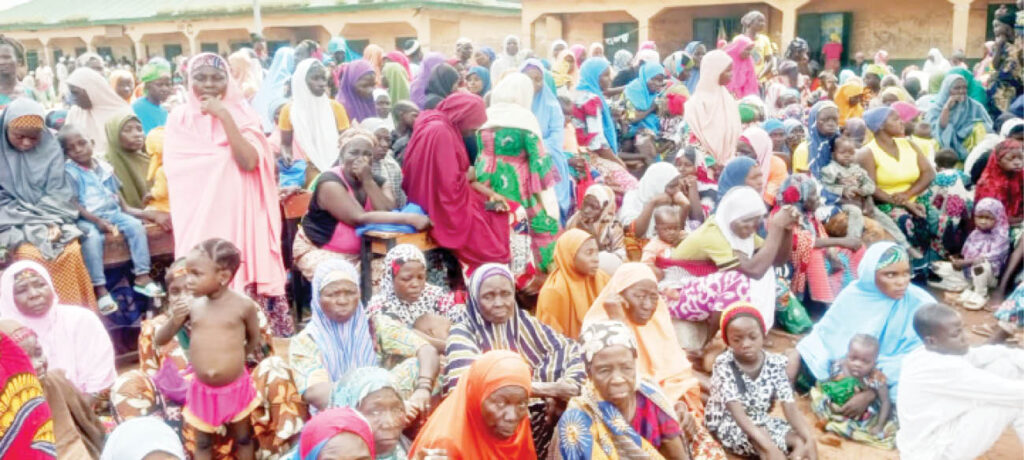[ad_1]
Nigeria is currently hosting over 3.5 million Internally Displaced Persons (IDPs) and more than 138,000 refugees and asylum seekers, according to the National Commission for Refugees, Migrants and Internally Displaced Persons (NCFRMI).
The figures were revealed at a high-level stakeholders’ dialogue held in Ilorin to commemorate the 2025 World Refugee Day.
The event, themed Community as a Superpower, was hosted by the Centre for Peace and Strategic Studies (CPSS), University of Ilorin.
SPONSOR AD
It brought together government agencies, security representatives, humanitarian actors, and academics to address the growing humanitarian crisis linked to forced displacement in Nigeria and the region.
In his address, Basheer Yusuf, the North Central Coordinator of the commission, said Nigeria accommodates 3,575,114 IDPs.
He noted that 2,252,348 of them are in the North East, 718,126 in the North West, and 604,640 in the North Central zone.
Yusuf added that over 410,000 Nigerian refugees are registered in neighbouring countries.
“These include 126,189 in Cameroon, 21,429 in Chad, and 263,086 in Niger. Within Nigeria, there are 138,154 refugees and asylum seekers, with 32,746 still awaiting registration. 16,215 refugee returnees have been documented, including 1,396 spontaneous returns and 14,820 repatriations.
“In addition, more than 2 million returnee migrants are in need of reintegration support.
“These figures reflect a growing humanitarian challenge requiring coordinated response strategies from national and local actors,” Yusuf stated.
Director of the centre, Professor Ibrahim Jawondo, highlighted the significance of collective engagement in mitigating the effects of displacement.
According to him, the refugees need to be settled, adding that the event served as sensitisation that the power to solve the crisis lies in host communities.
Focal Person for the centre’s World Refugee Day programme, Dr Ruth Abiola Adimula, in her paper, underscored the role of communities in responding to refugee needs.
She described communities as lifelines of emotional and structural support, with the power to turn despair into hope by welcoming displaced persons.
“As wars, climate change, and instability continue to displace millions, the need for strong, caring communities will only intensify,” she said.
She noted that as of 2023, over 88,000 Cameroonian refugees were living in Nigeria, especially in border communities across Cross River, Taraba, Akwa Ibom, Benue, and the FCT.
The Deputy Vice Chancellor (Research), University of Ilorin, Prof. Muhtar Adeiza Etudaiye, who represented the Vice Chancellor, Prof Wahab Egbewole (SAN), said the university had opened its doors to refugees.
He said donors had supported their education and living conditions through their school’s efforts in addition to special waivers and consideration in admission.
Mr Seun Todimu of the Kwara State Emergency Management Agency (SEMA) listed unstructured IDP camps, funding constraints, and reintegration issues as challenges in the state.
Director of the National Orientation Agency in Kwara State, Mr Dare Abdulganiy, said host communities must show tolerance and empathy to help displaced persons feel safe.
The Oba of Agbeku Land, Oba Abdulazeez Agboola Adeshina, said traditional rulers must help their people understand the trauma that brought the displaced persons to their communities.
He thanked the organisers for bridging the gap between affected populations and host communities.
The speakers agreed that tackling displacement requires both government action and grassroots support.
Do you want to share a story with us? Do you want to advertise with us? Do you need publicity for a product, service, or event? Contact us on WhatsApp +2348183319097 Email: platformtimes@gmail.com
We are committed to impactful investigative journalism for human interest and social justice. Your donation will help us tell more stories. Kindly donate any amount HERE




